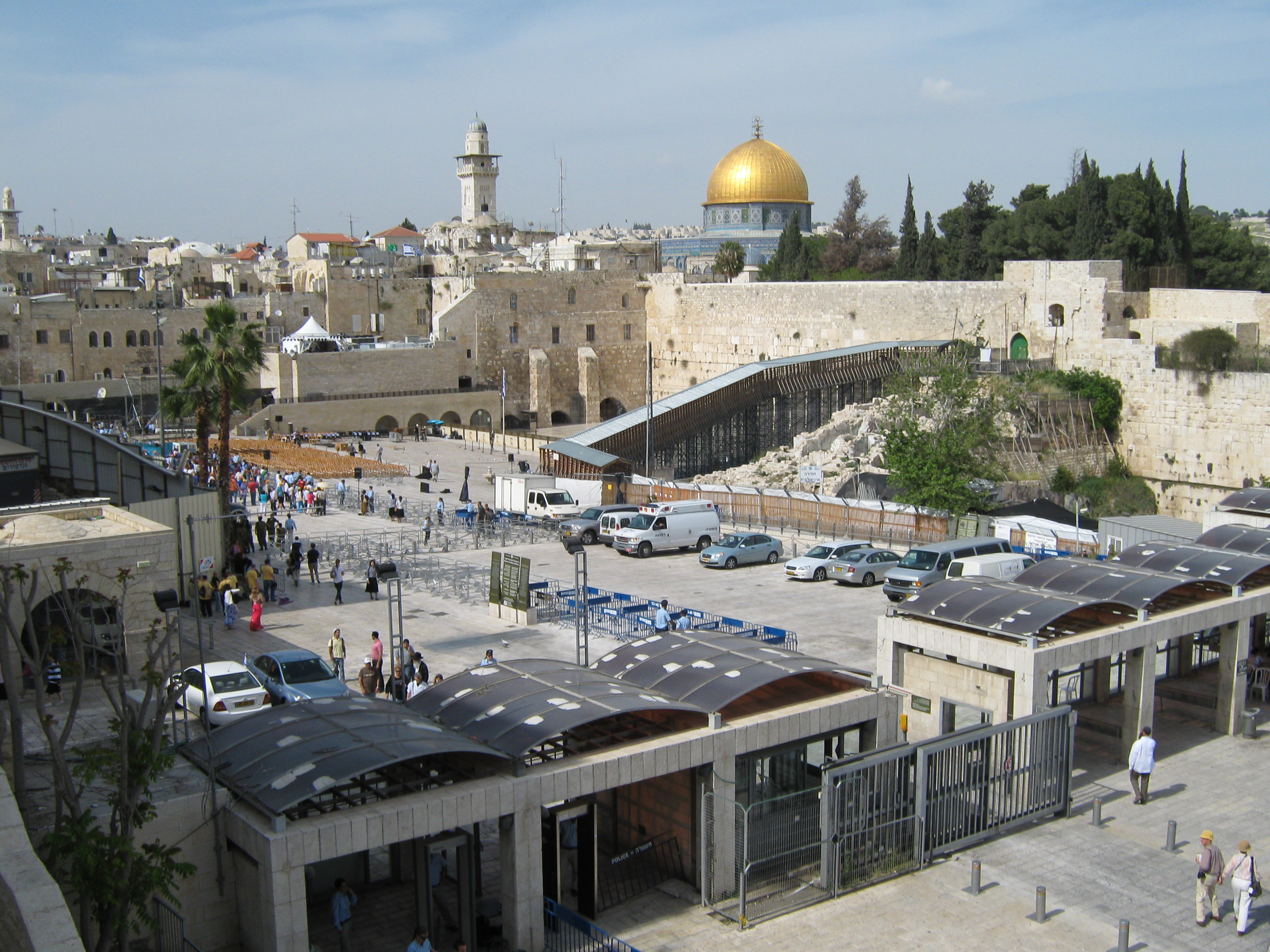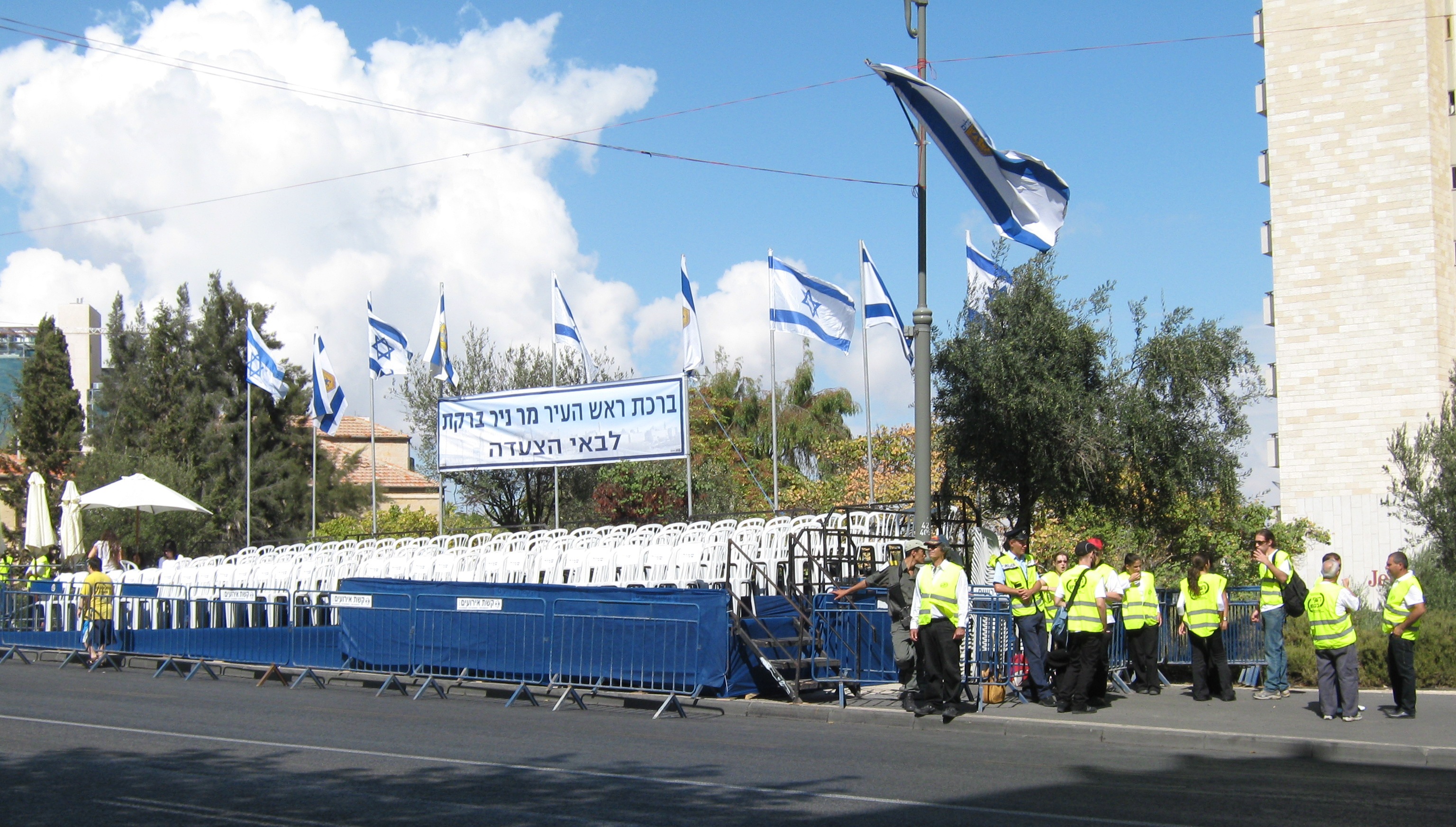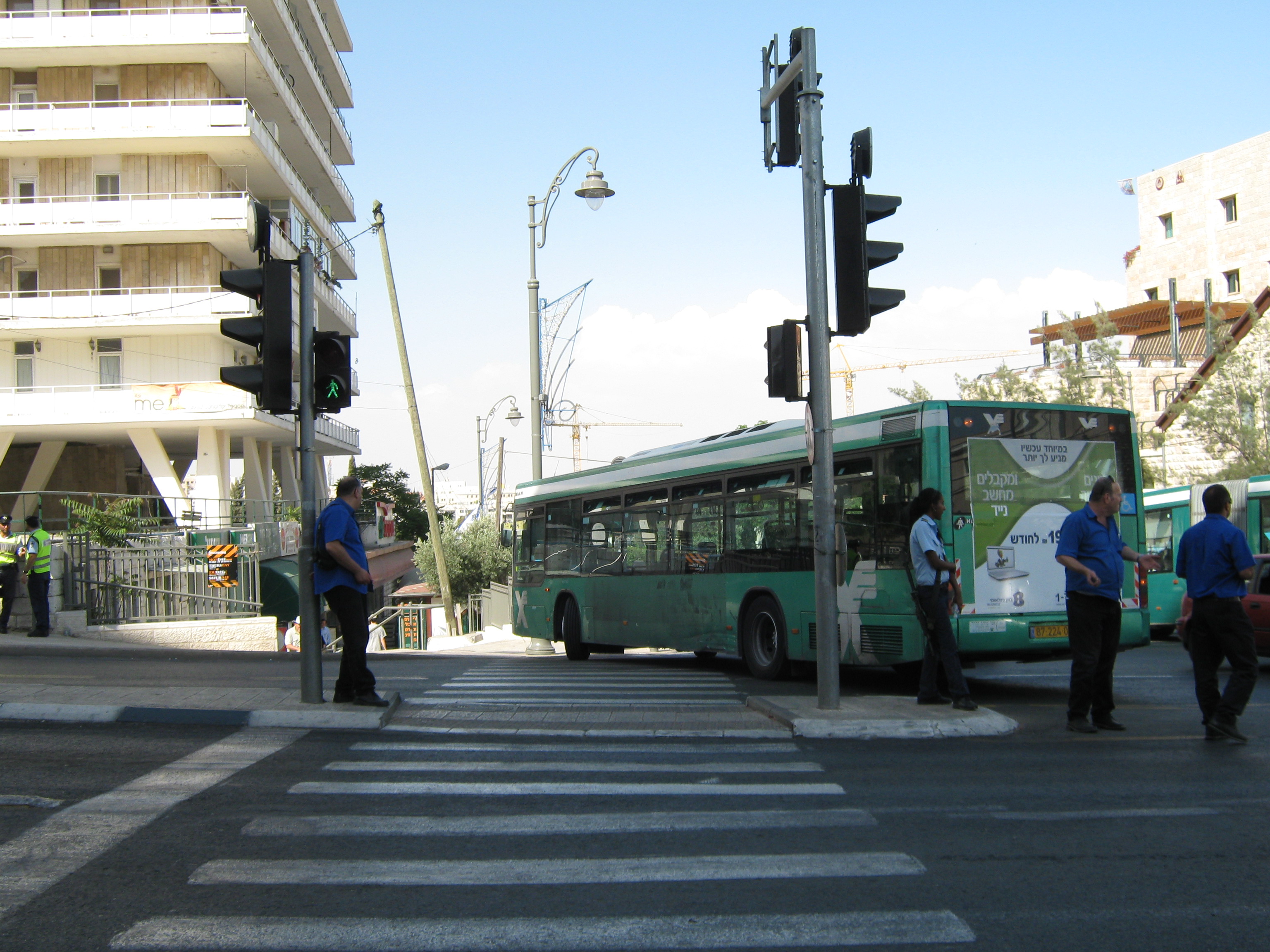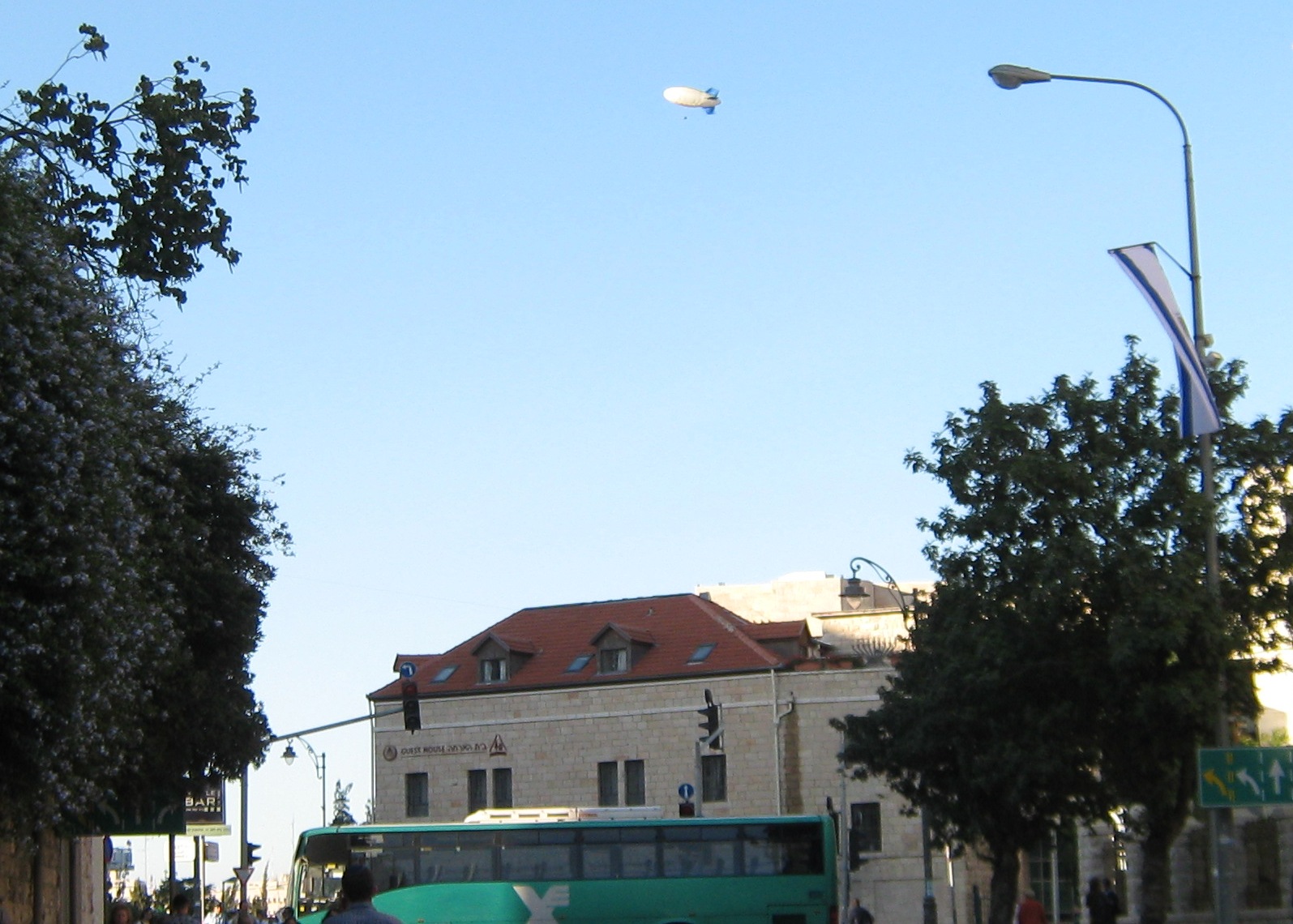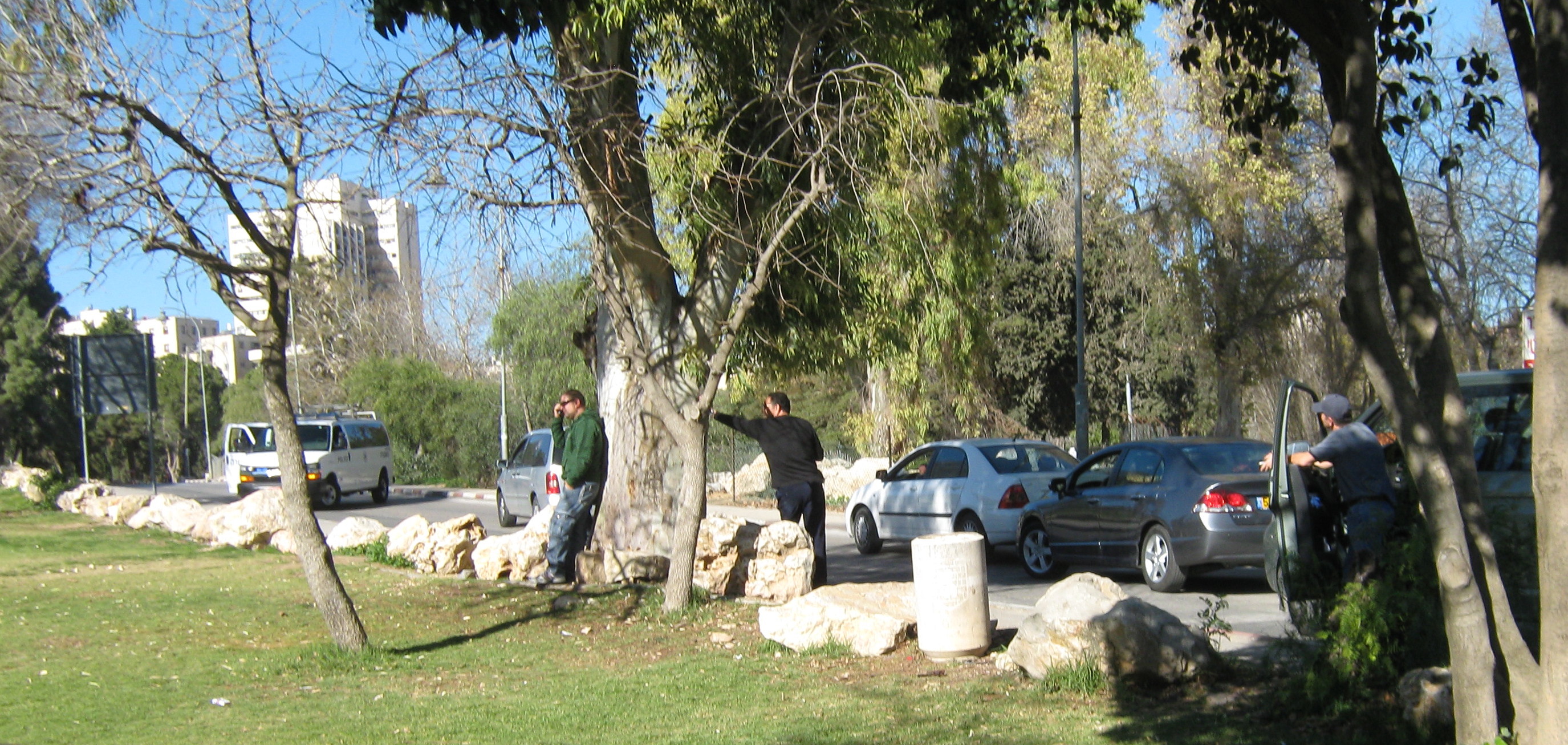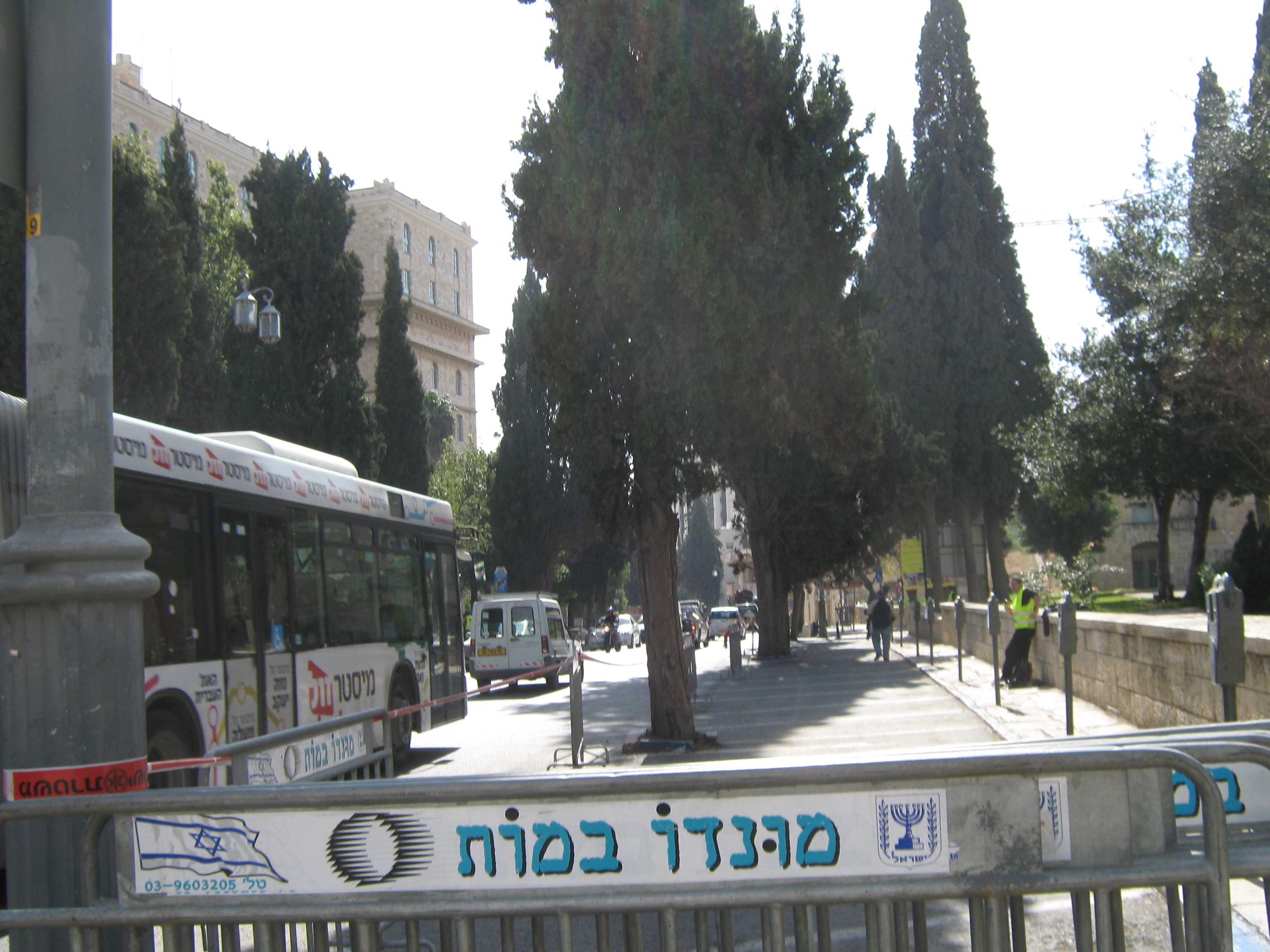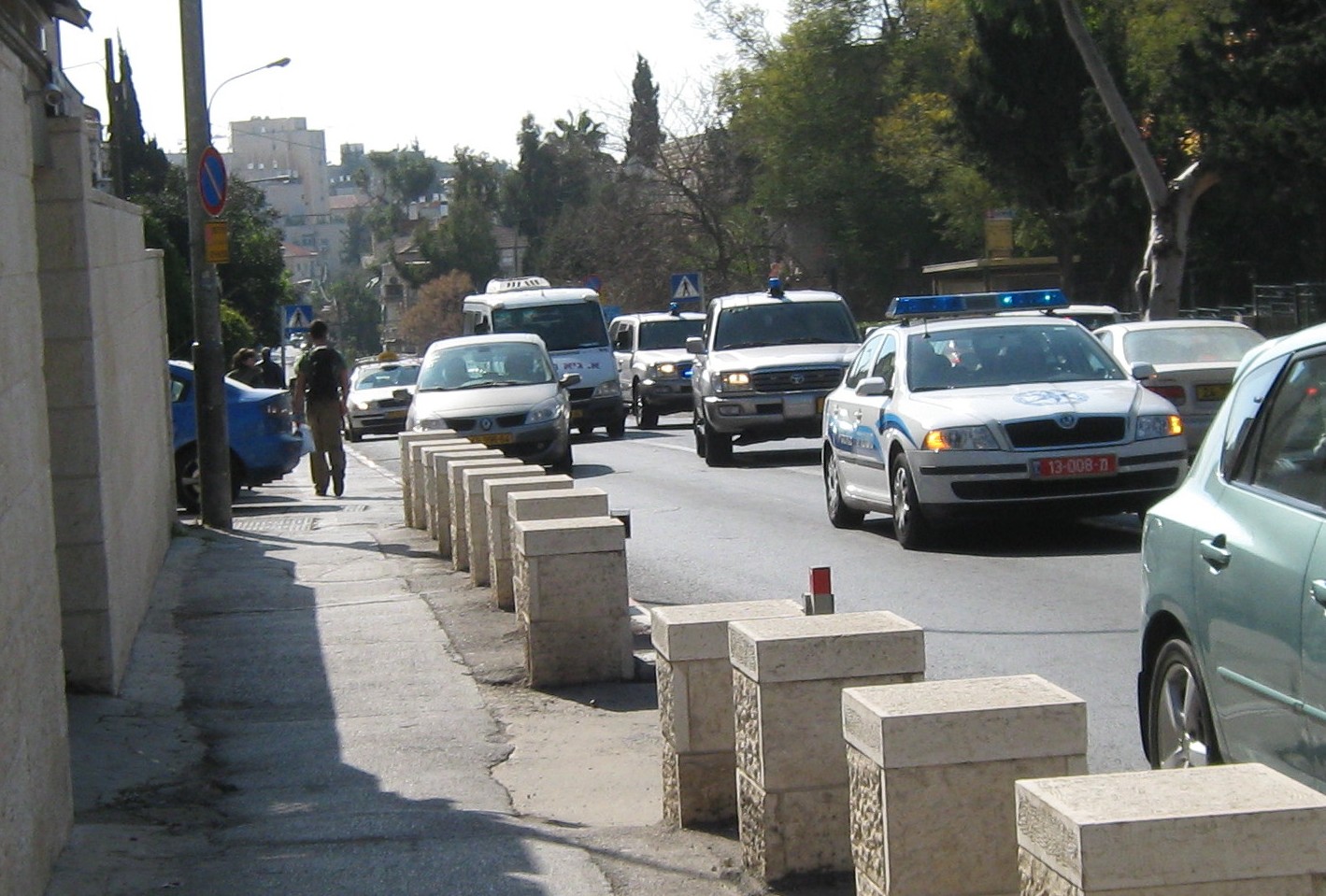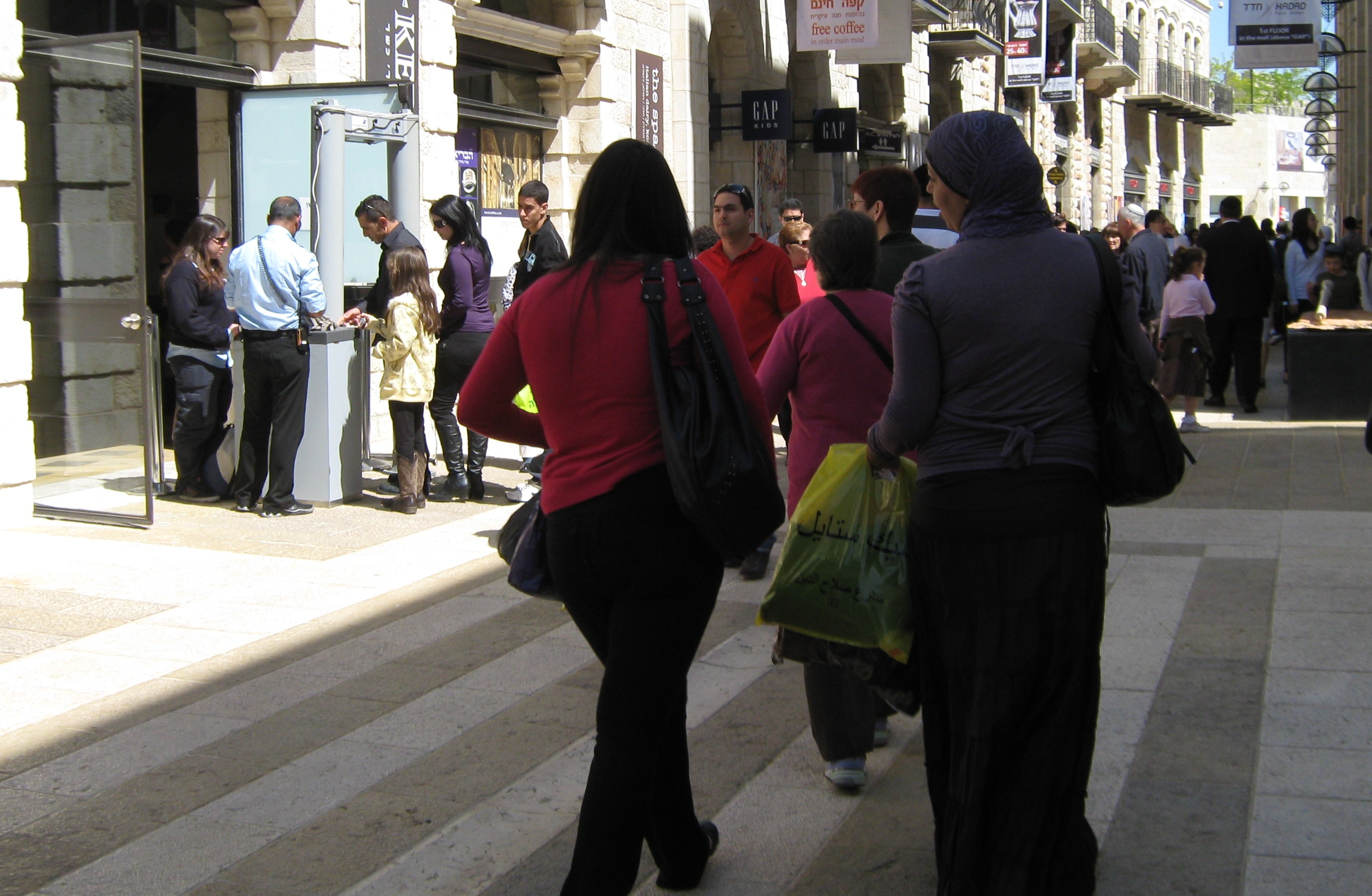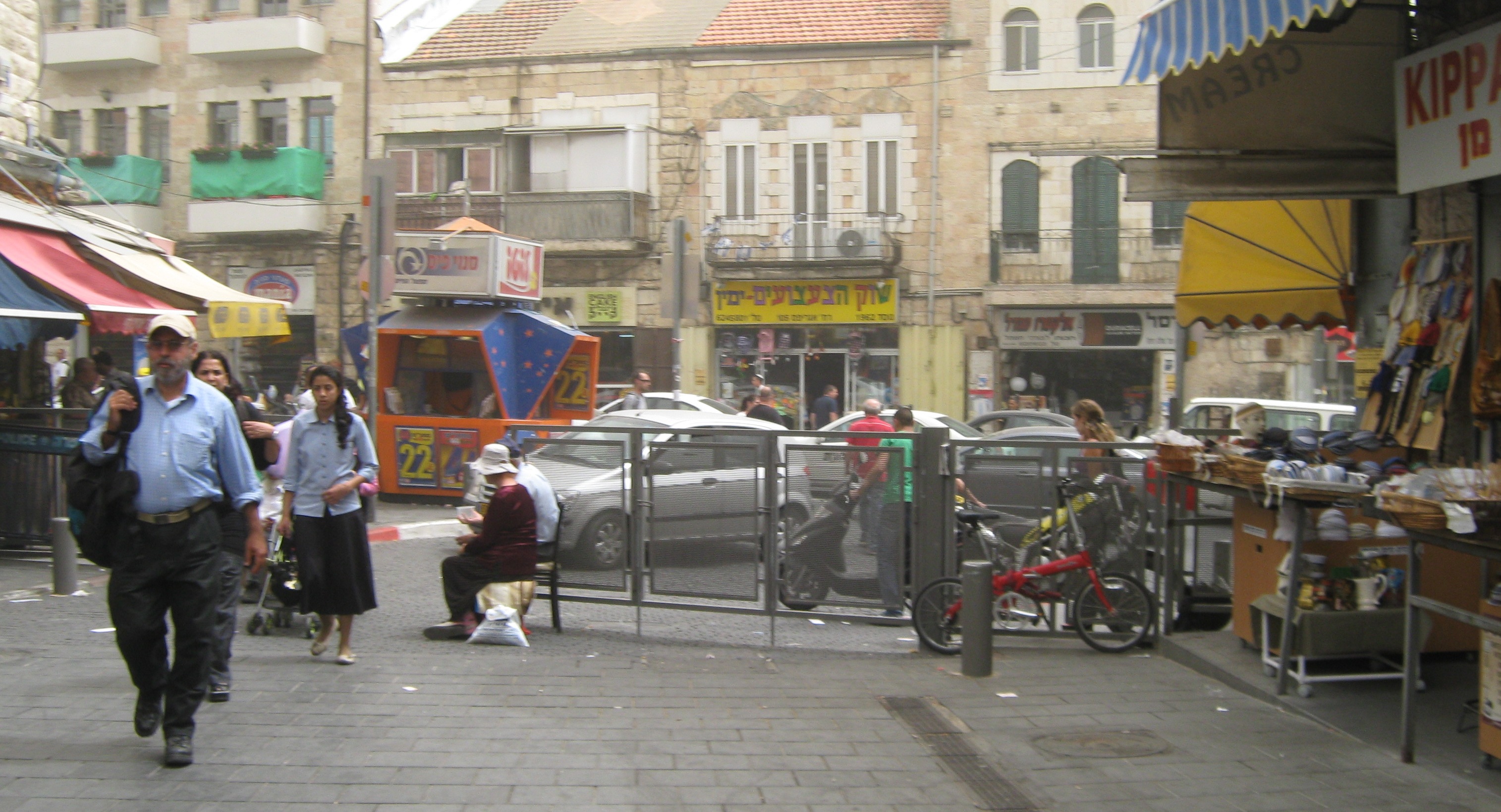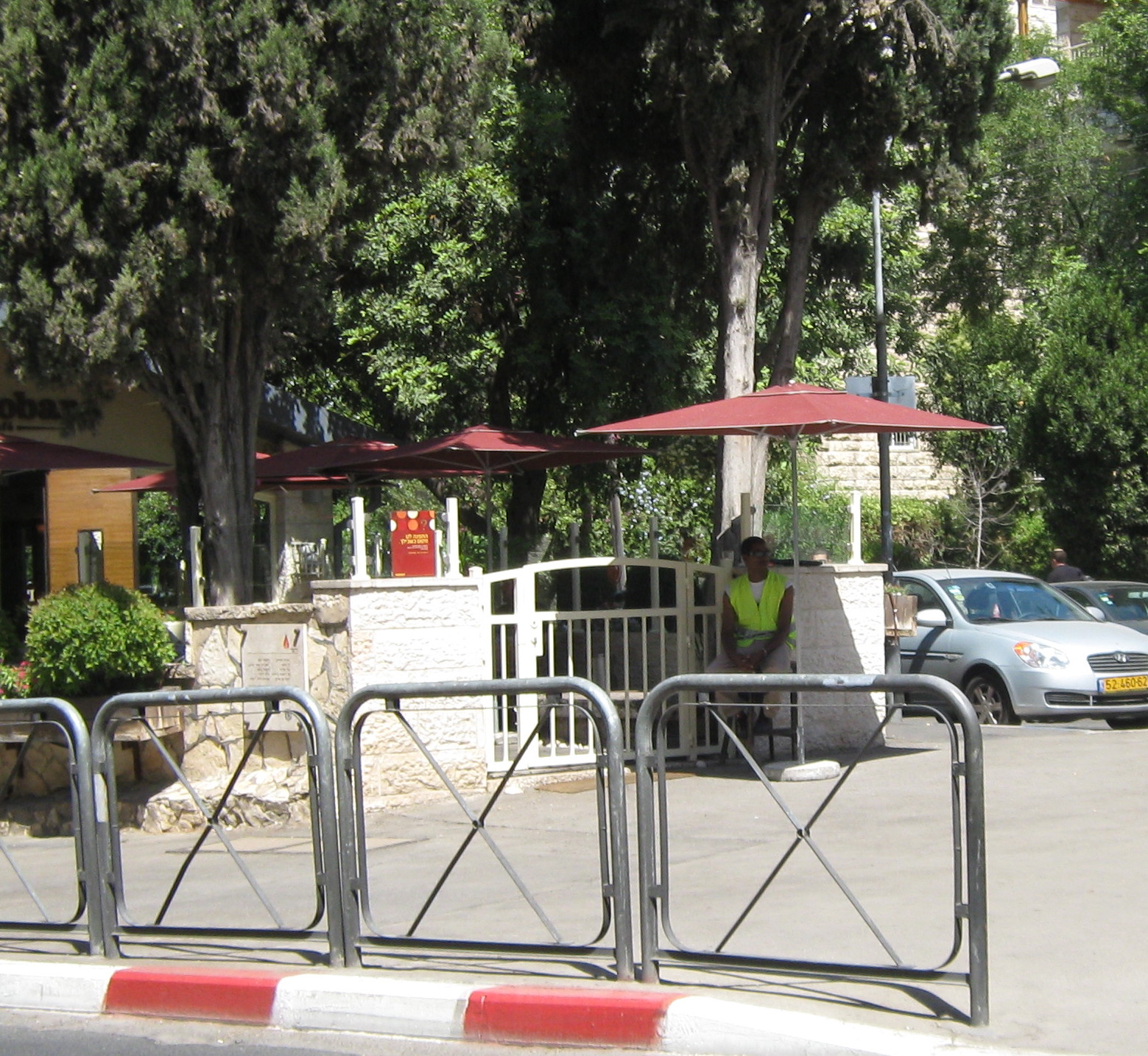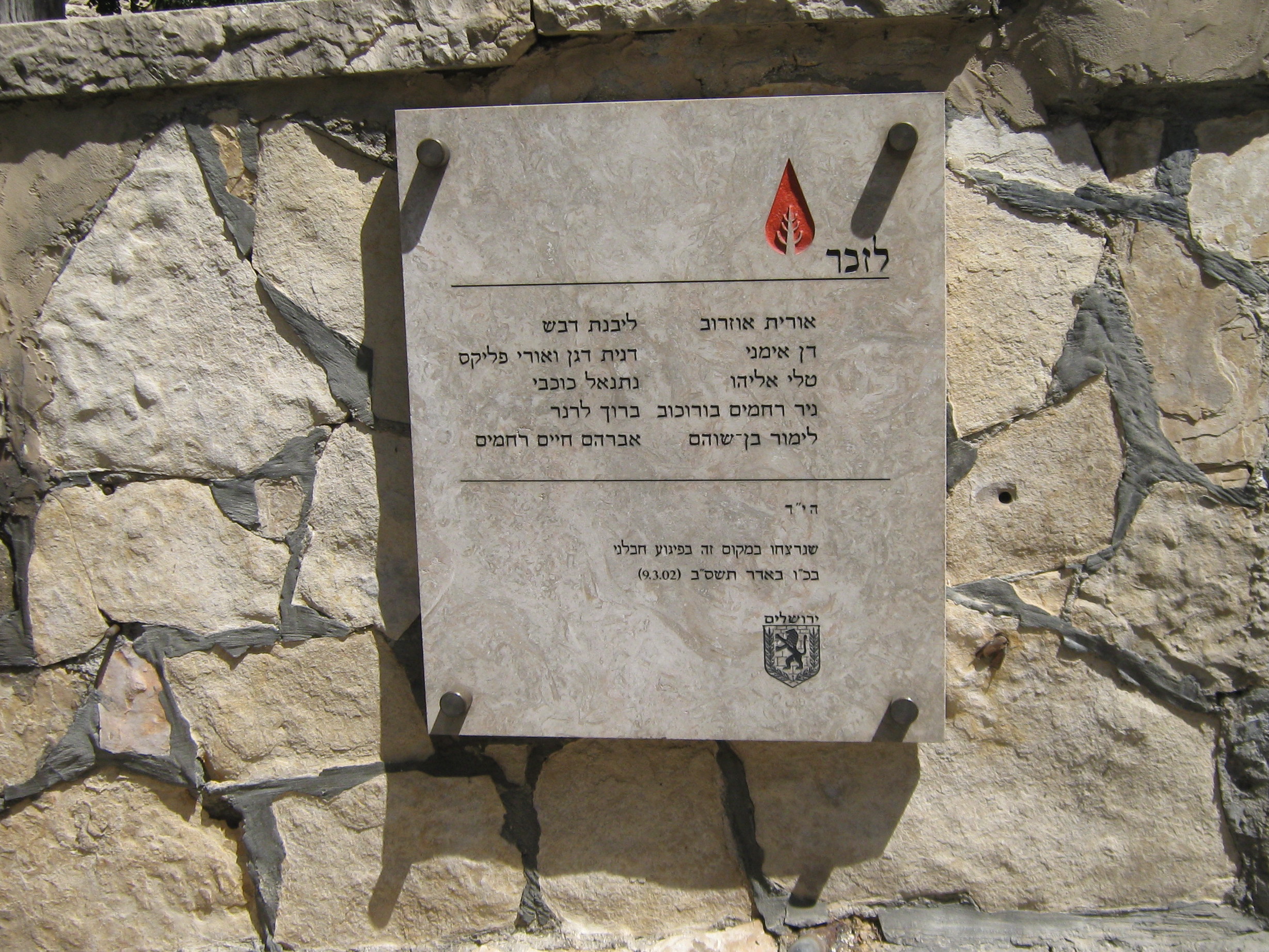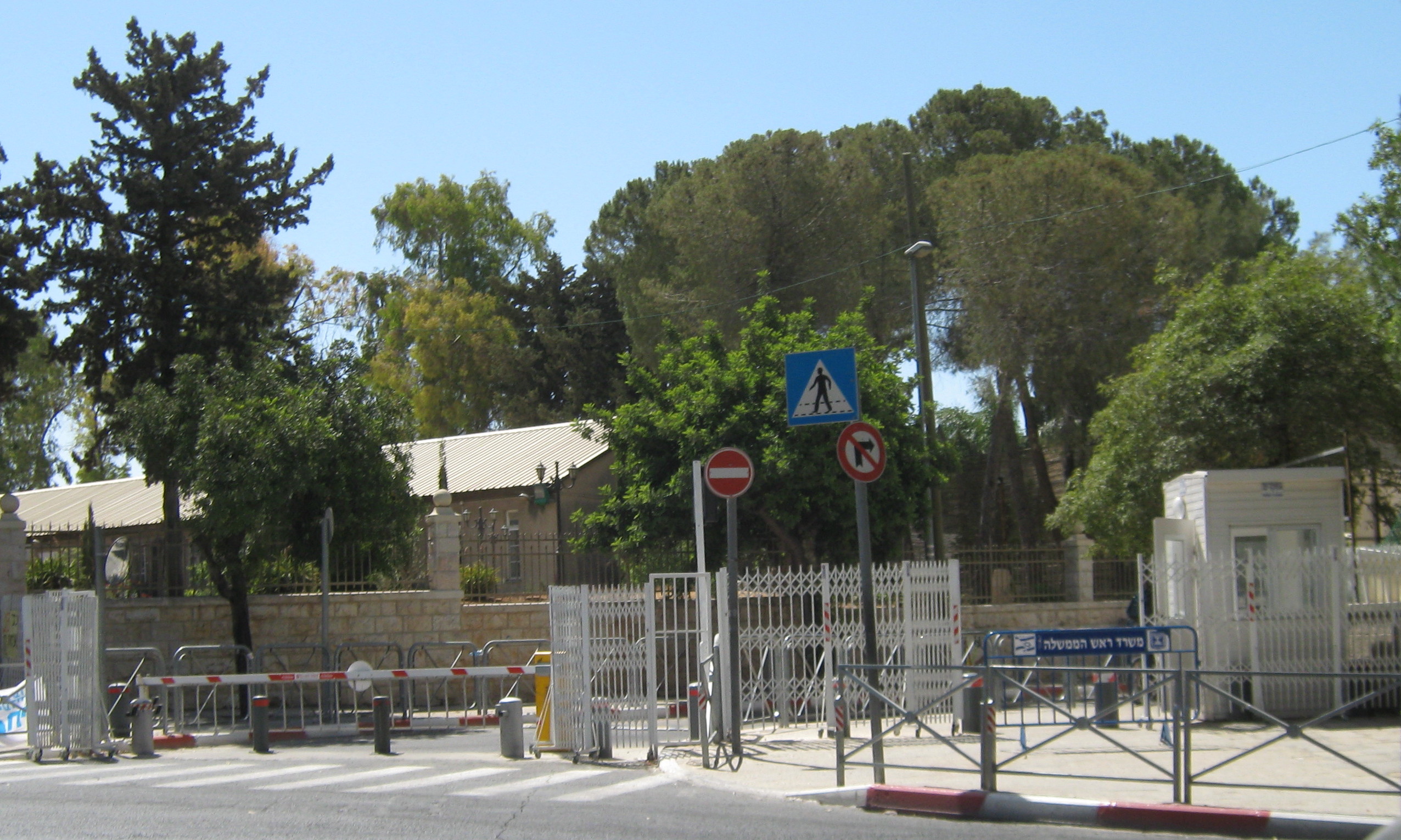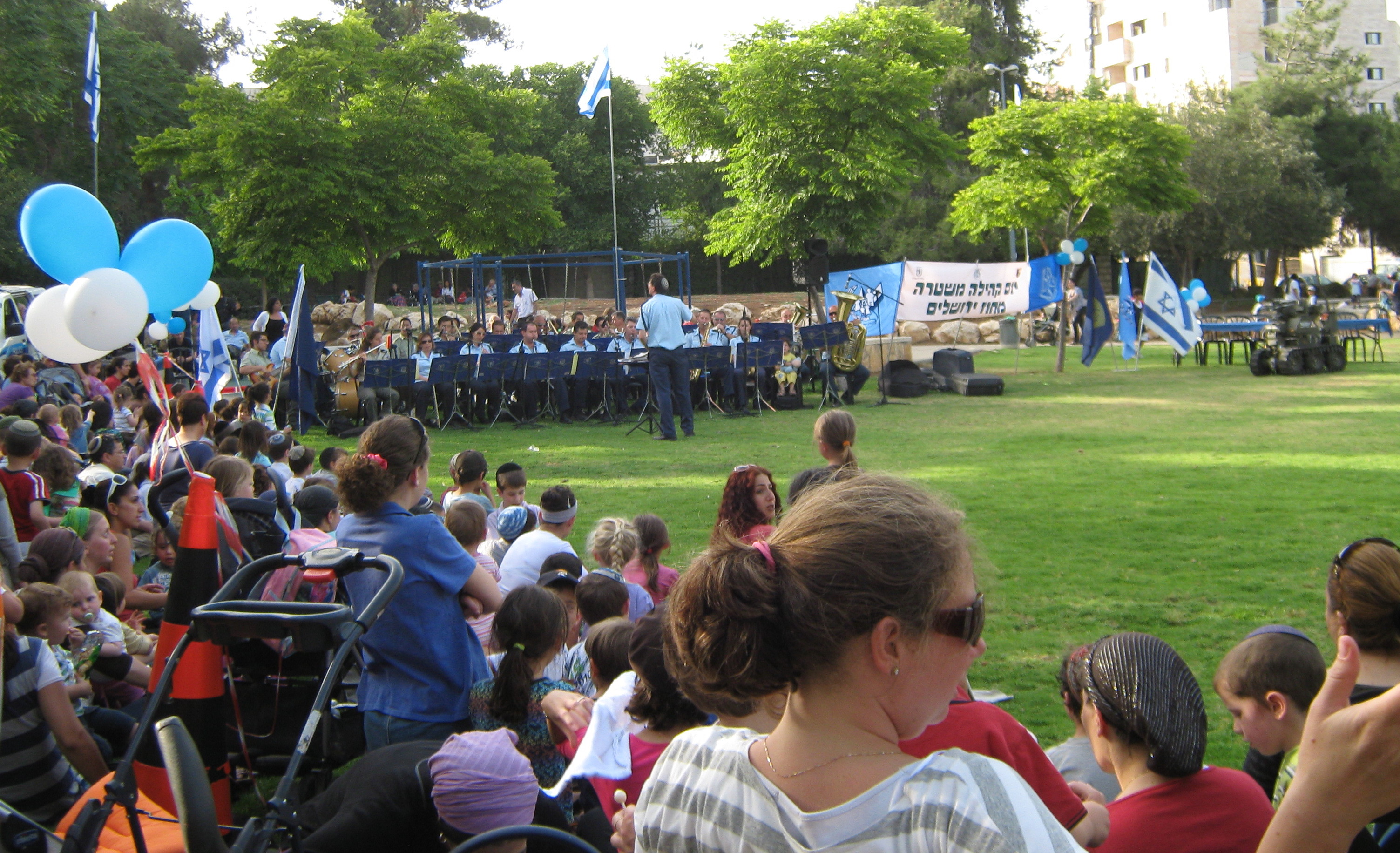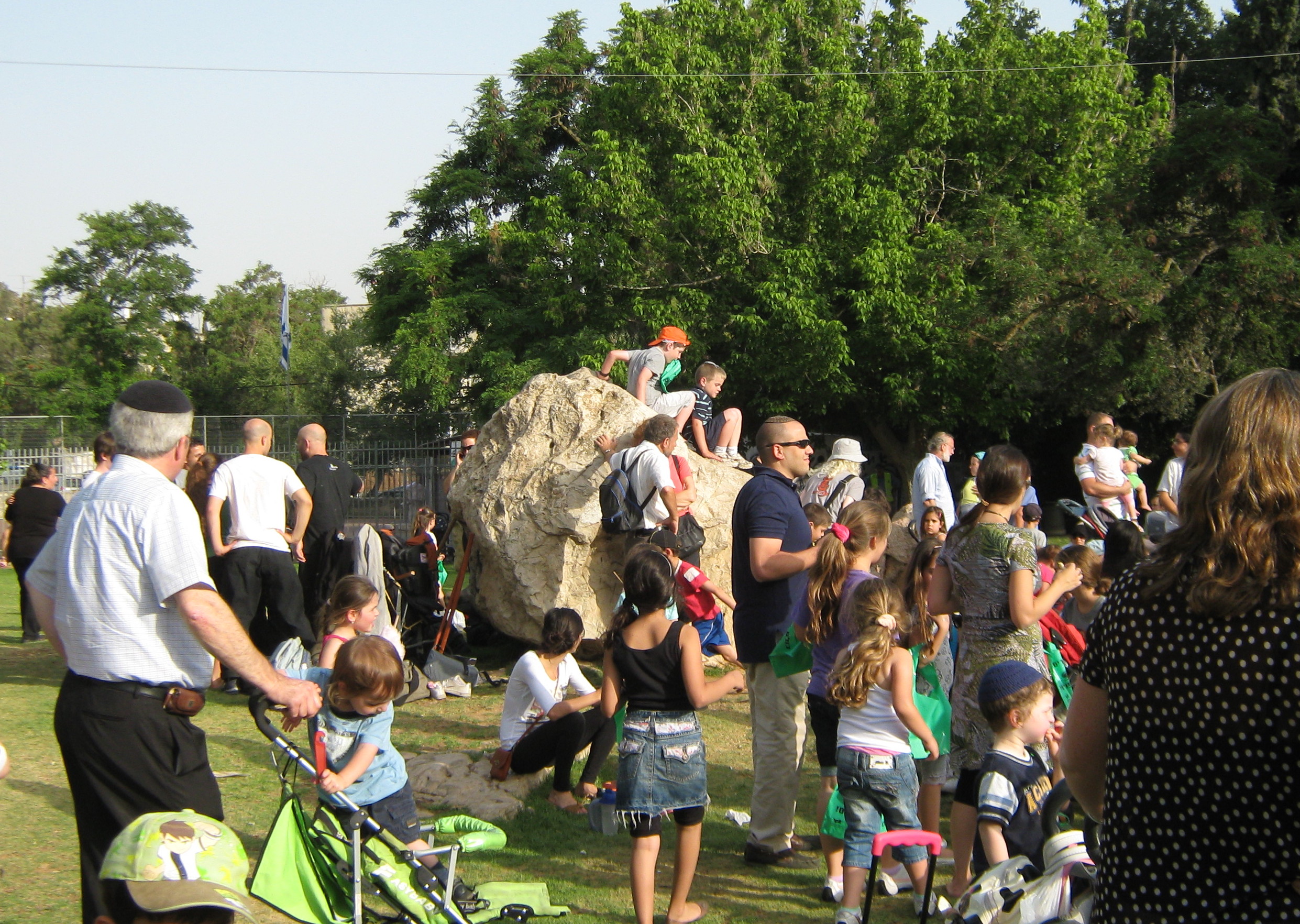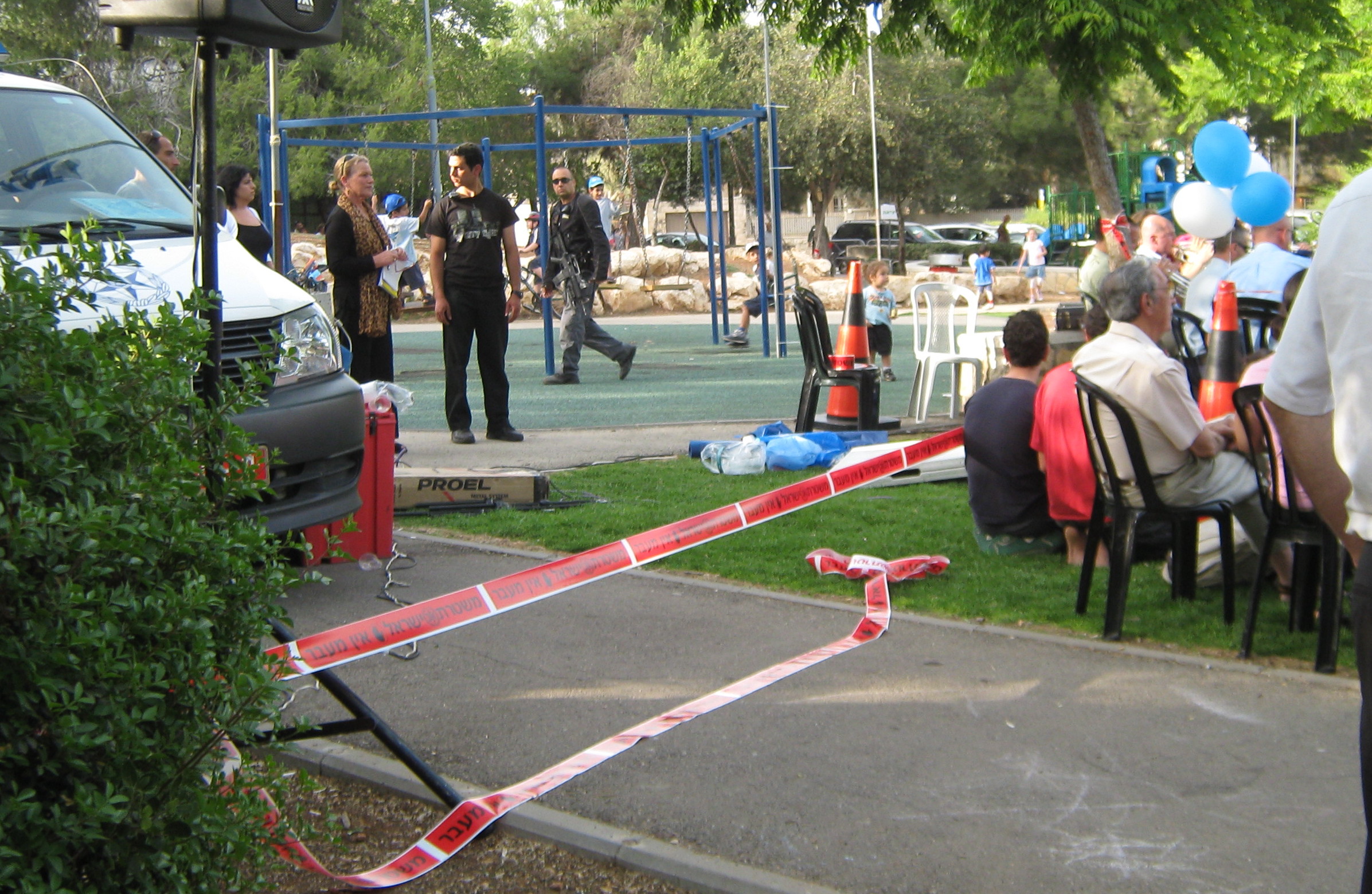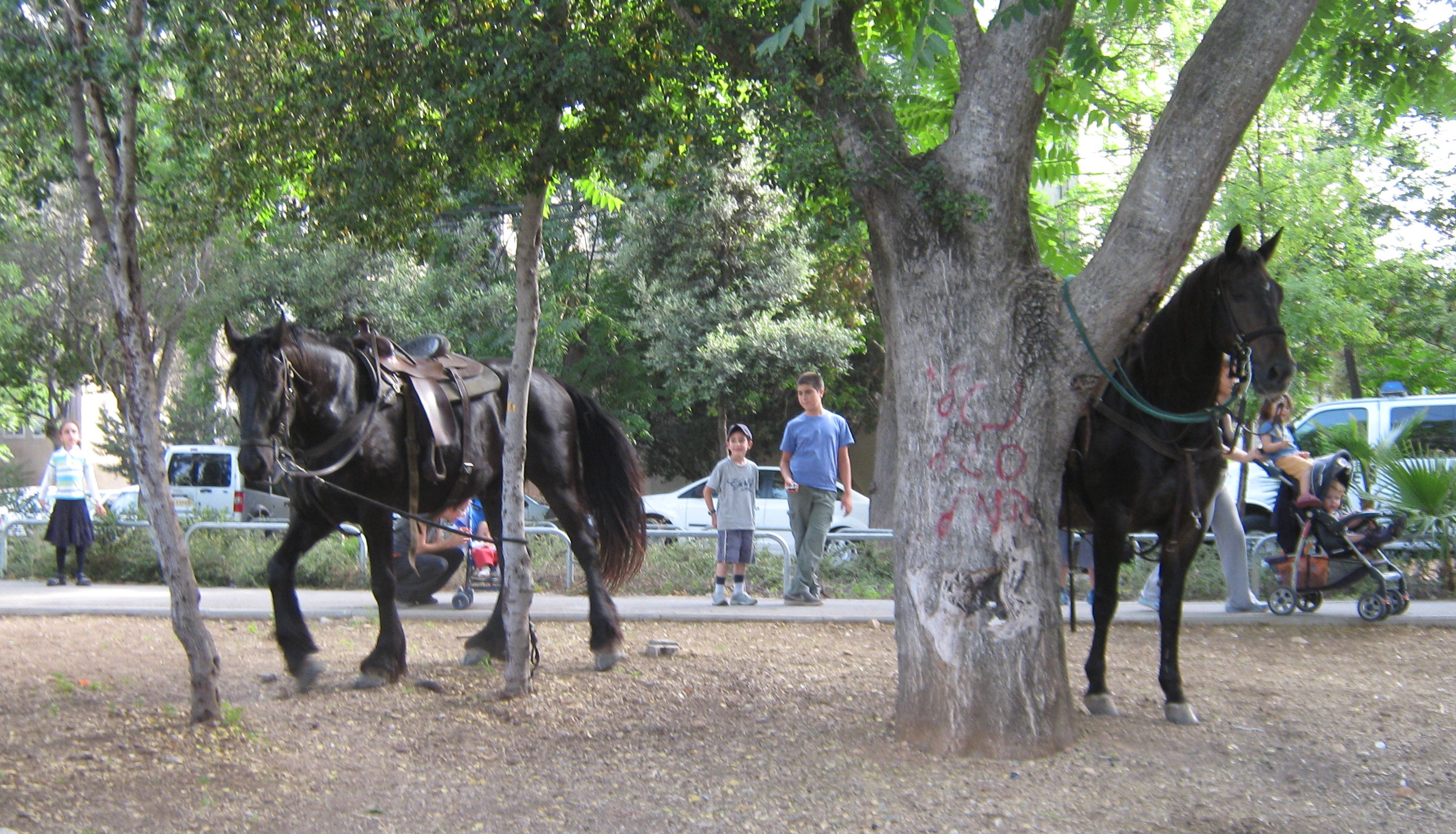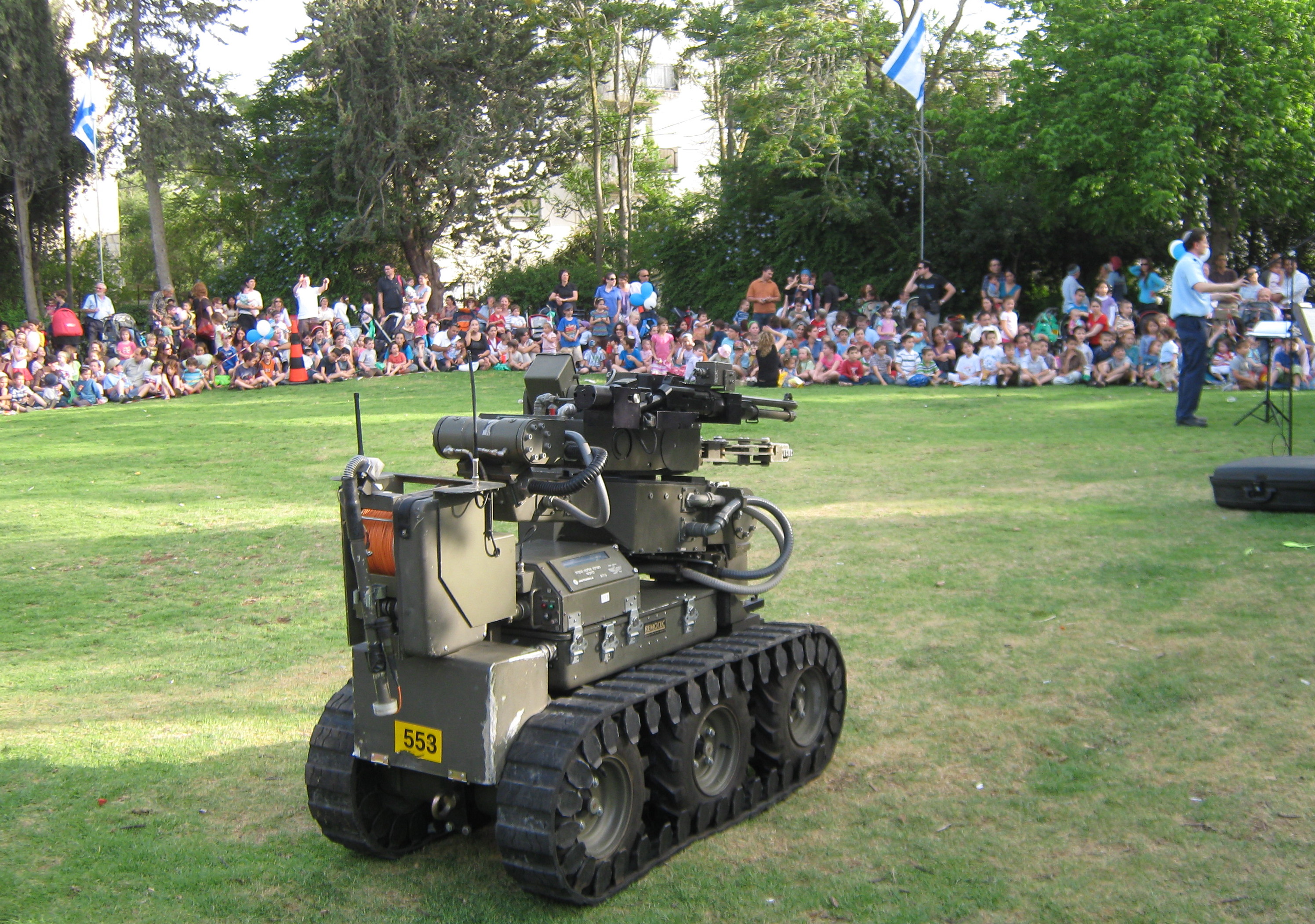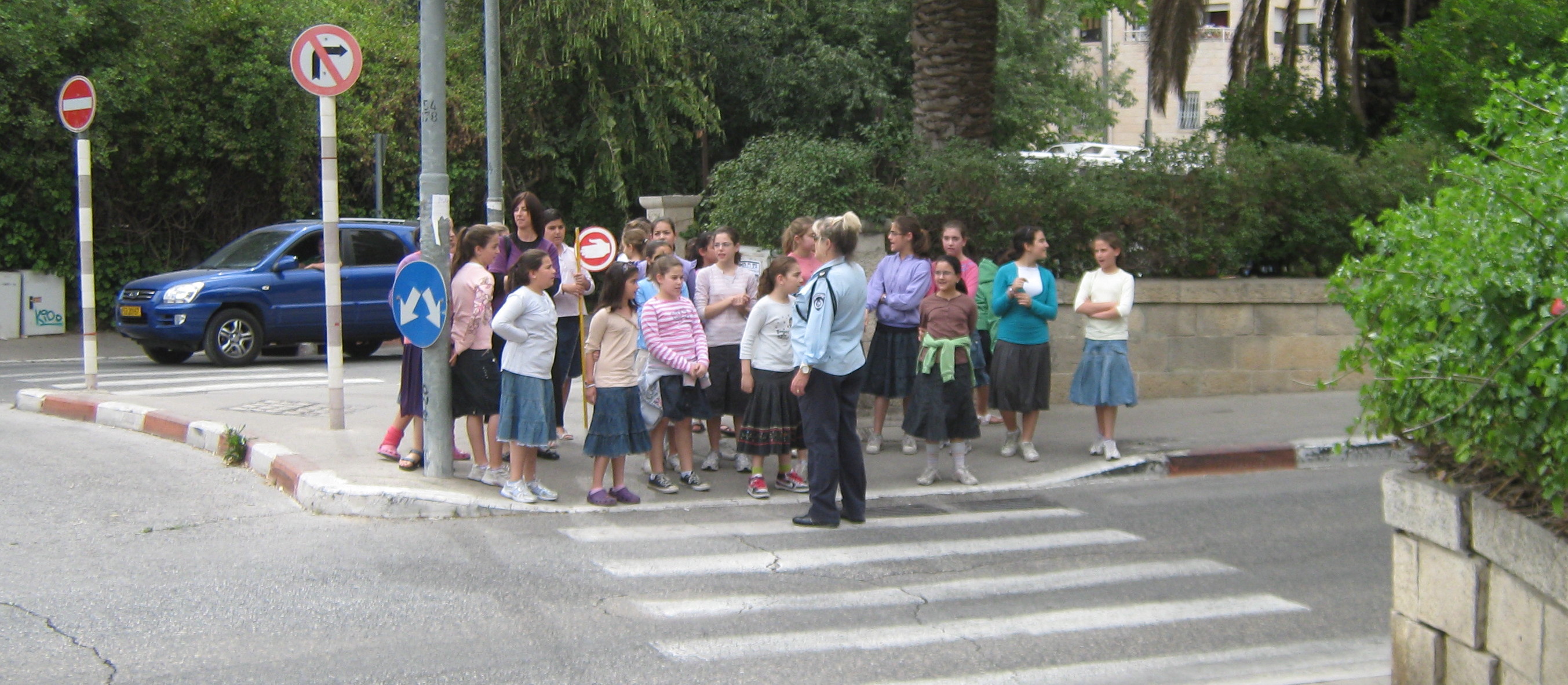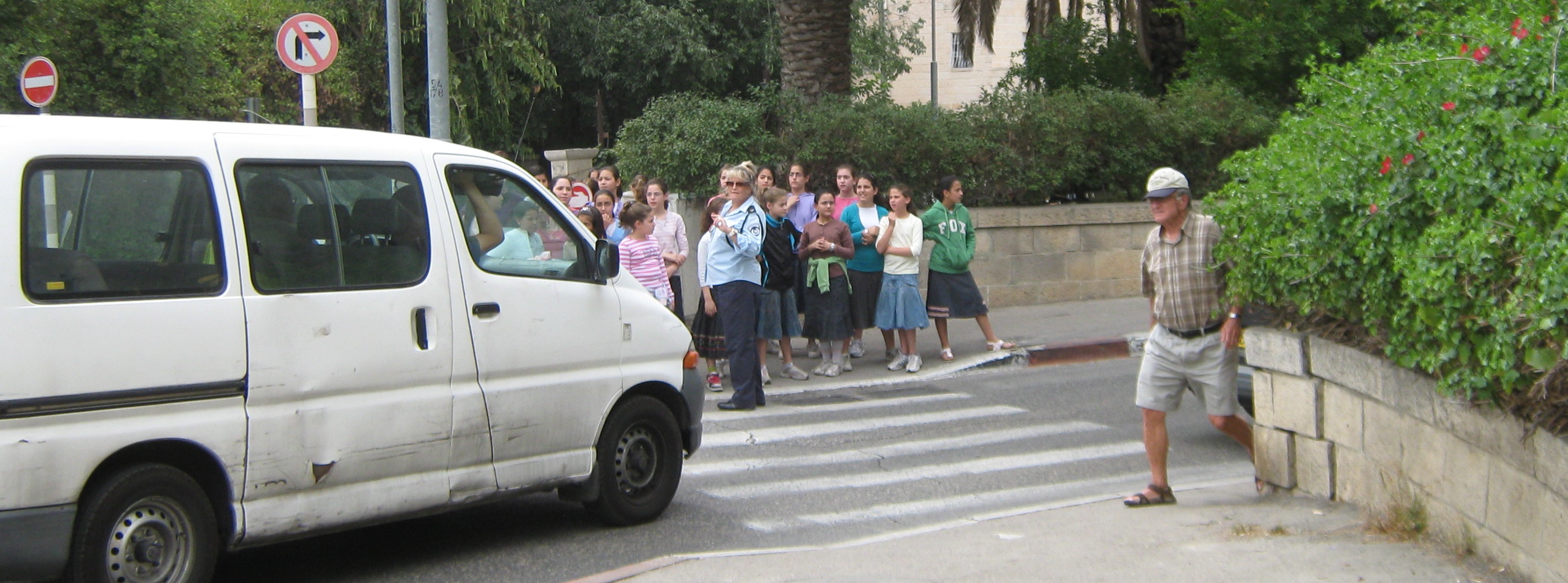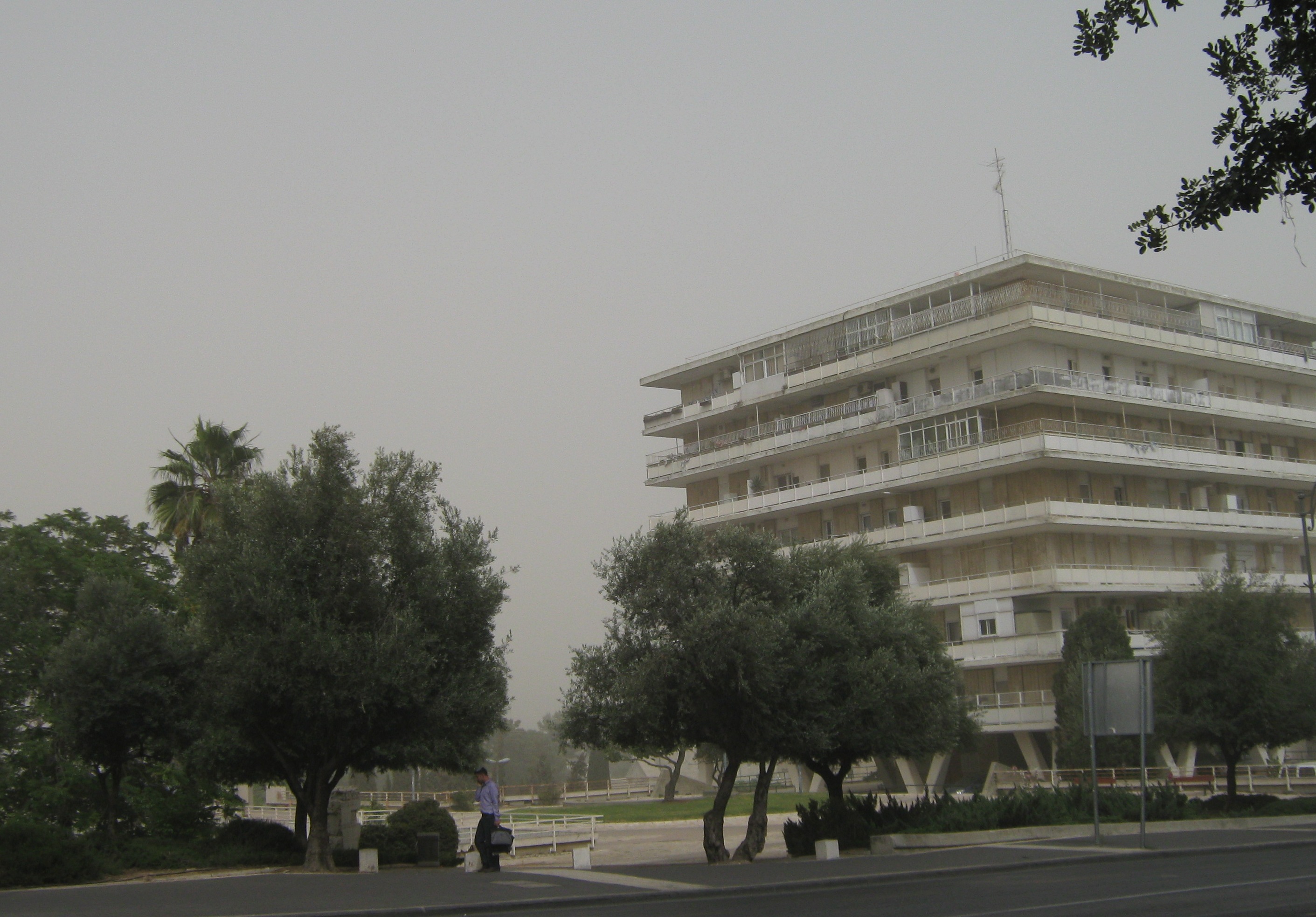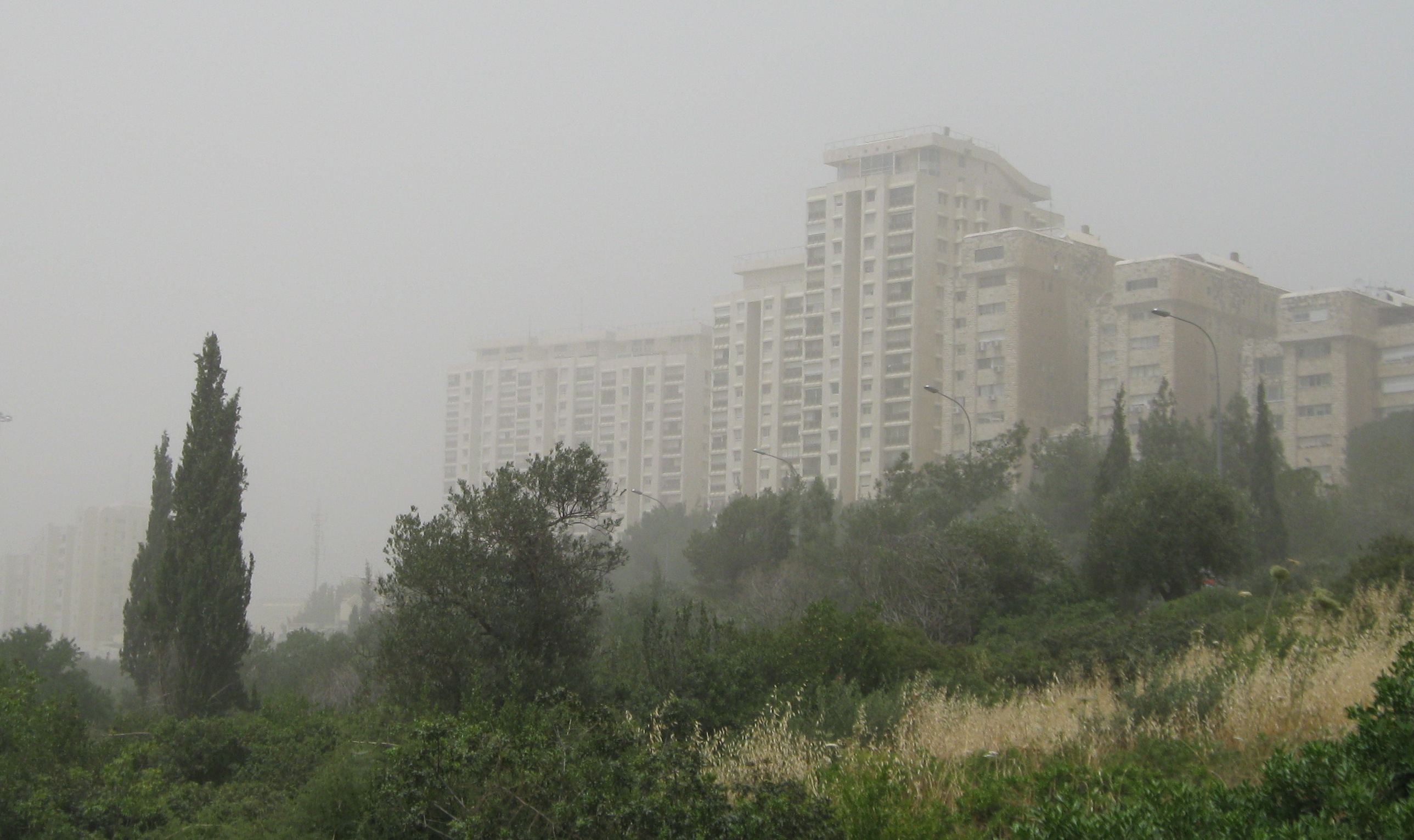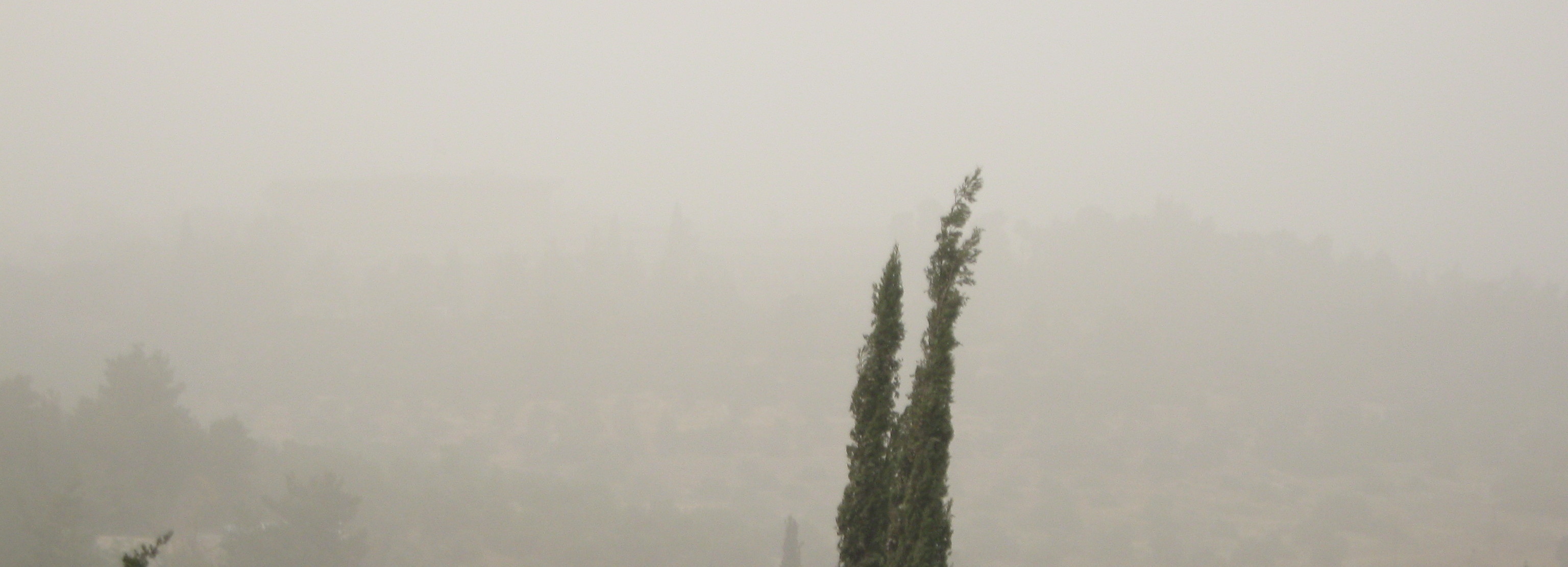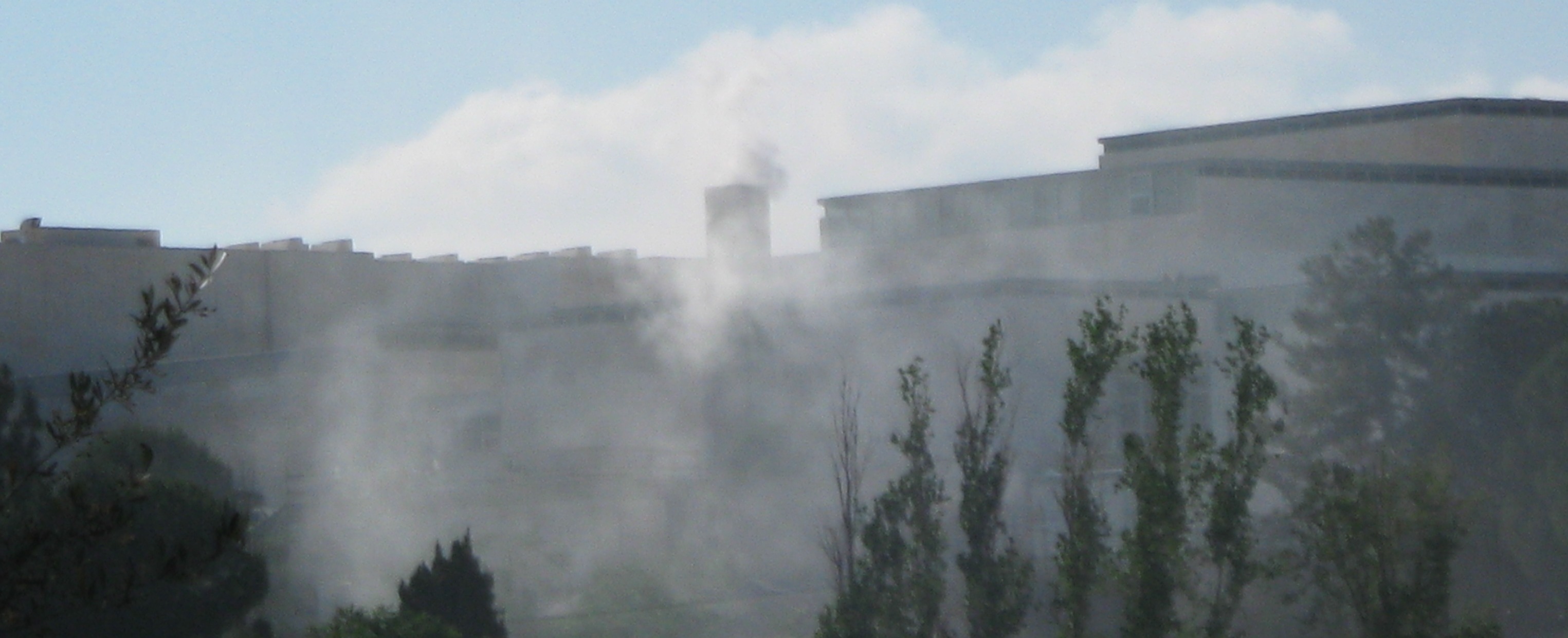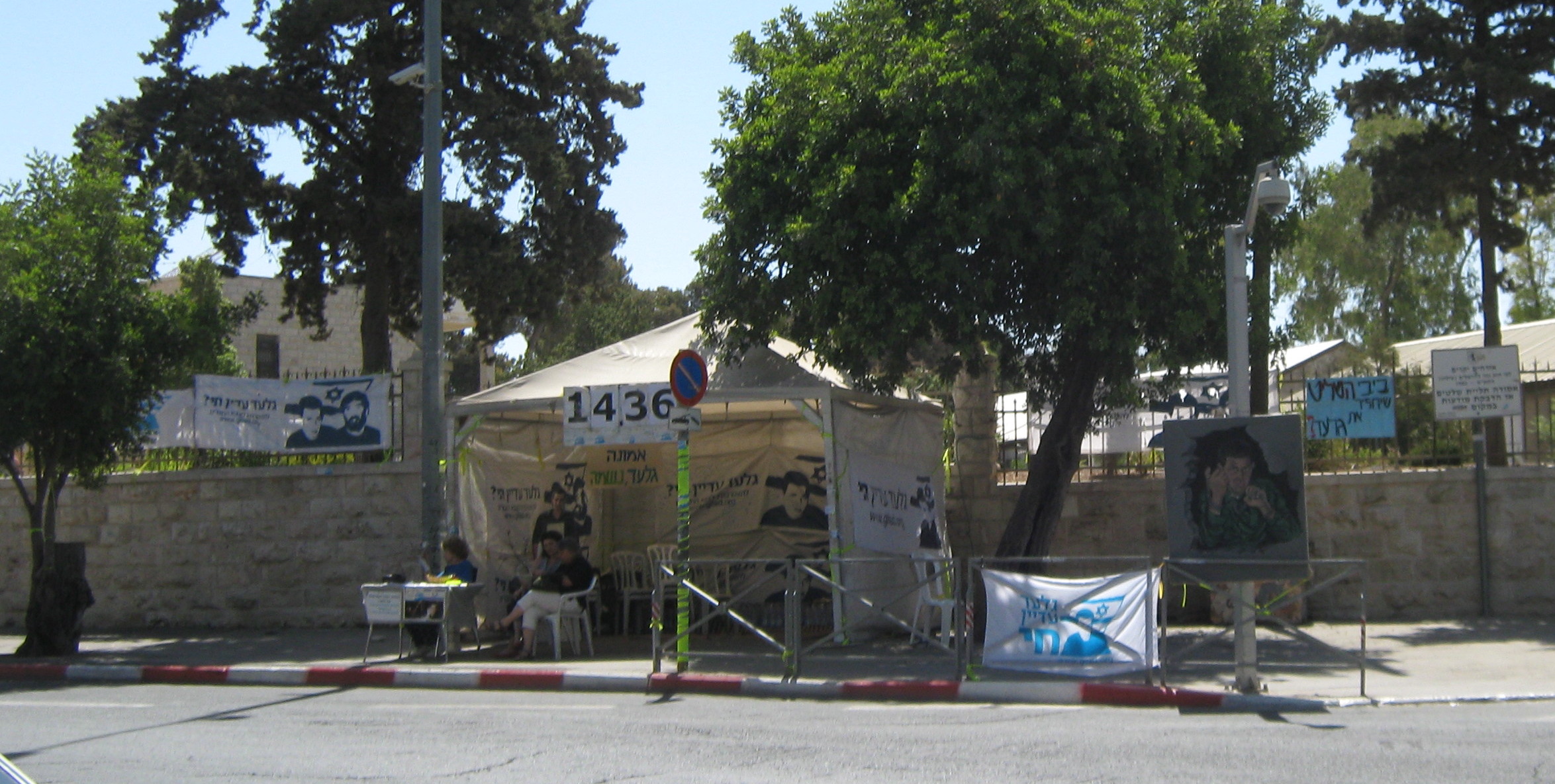There were more security concerns this week than usual,
beginning with a large civil defense drill held in all parts of Israel.
On Wednesday morning at 11 am, the sound of a siren alerted Jerusalem’s citizens to find shelter.
Visitors and those riding in vehicles were instructed to go about their business.
Those people in government buildings, schools, and businesses may have complied,
but many citizens did not take this drill seriously, as shown by this woman who was hanging out the wash.
Security is always a concern, with extra measures for
special events near the Kotel, the Western Wall
or when the mayor is to attend a parade on King George Street.
Buses are regularly used to block streets for major events
but a bus below and a blimp above is unusual.
Traffic is often blocked while a suspicious package is checked.
Closed sidewalks near the King David Hotel and
stopped traffic for the Prime Minister’s vehicles
are routine procedures,
as are metal detectors and searches of all bags of those entering a building in a mall or supermarket.
New barriers at the entrances to the shuk, Machane Yehuda Market, may slow down those entering,
but most days beggars are more obvious than security personal.
Restaurants have a security guard posted outside.
The sign at this restaurant is in memory
of the people killed here by terrorists,
it is located across the street from the Prime Minister’s official residence,
where security was very light while he was in Canada.
NO photos of the United States’ buildings are allowed, not even of the flag on top… more security.
While the media was chasing Rahm Emanuel and family so that they needed more security,
a large police presence was appreciated at a community day event. A police band played,
hundreds of families participated and enjoyed
the beautiful horses and
a hi-tech robot that were brought to the park.
Even as this policewoman was training a group of new crossing guards for next school year,
a van came dangerously close to the group, demonstrating one of the country’s biggest security issues;
too many pedestrians are killed and injured in the crosswalks by reckless drivers.
For a few days the air quality was so bad that breathing was a hazard, the sky was the grey color of the
stone buildings
assuming you could see the buildings. Many people were secure only inside their homes.
Whatever was coming out of the Israel Museum certainly did not improve air quality.
Today people are moving around a bit slower, as a new heat wave hits and a bit sadder
after the Gaza Flotilla incident brings a new security alert to Jerusalem
and we count another day of captivity for Gilad Shalit.

